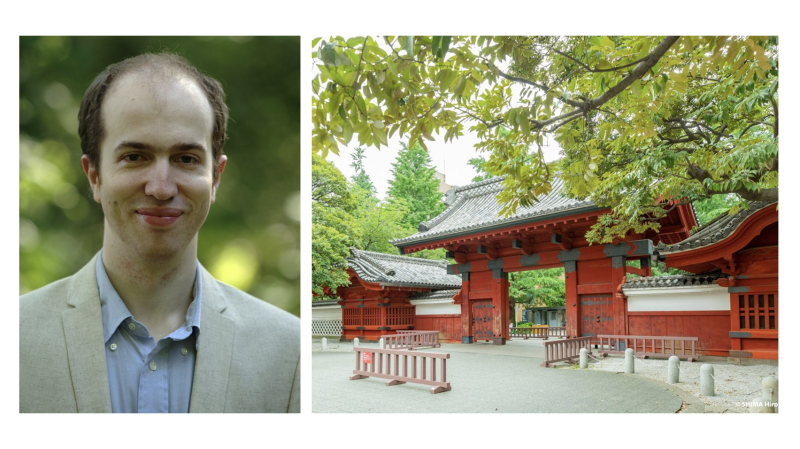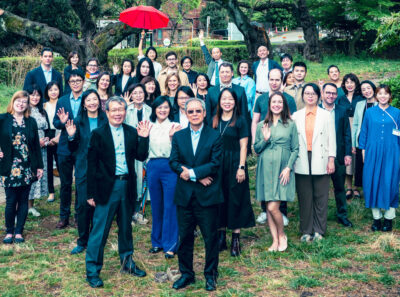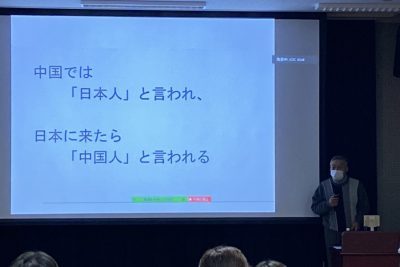New Member Interview: Postdoctoral Fellow Evan DONAHUE

In this blog series, we interview new members of Tokyo College. For this entry, we spoke with Dr. Evan DONAHUE, a Postdoctoral Fellow who joined us this past August.
Welcome to Tokyo College! Could you tell us a little bit about what you were doing before joining the College?
Before joining Tokyo College in August I was finishing up a PhD on the history of artificial intelligence at Duke University in the United States. I moved to Tokyo at the beginning of September with my wife and two cats, and have since been settling in and exploring the city.
Could you explain your current research project(s)?
Much of the recent history of AI in the United States has its origins in large government investments in the 1980s. Those investments were a response to competition from the Japanese government's own investments in computing at around that time, and in particular the Japanese Fifth Generation Computer System project (FGCS). The history of the FGCS has something of the quality of a Rashomon story in that accounts of the project differ dramatically from one another, with some labeling it a success and others a dismal failure. The fact remains, however, that the FGCS was one of the largest ever efforts to design a certain kind of computer that remains still unrealized 30 years later, so I am interested in looking at whether the history of that project can offer inspiration to current work in computing if we look past trying to establish whether it succeeded or failed. I hold degrees in both mathematical computer science and technology history, and the goal of my research is to think about how we can use the past to help imagine the future.
What are your goals for your tenure at the College?
The most unique aspect of Tokyo College relative to previous institutions I have worked at is the sheer diversity of disciplinary backgrounds that are represented among its members. The reality of academic work is that there are likely many promising connections between any given research project and numerous other fields, yet those connections are routinely missed for lack of opportunities to encounter scholars in those fields who know how to think about them. My goal at Tokyo College is to start as many conversations as possible that can lead to new ideas at and beyond the College.








